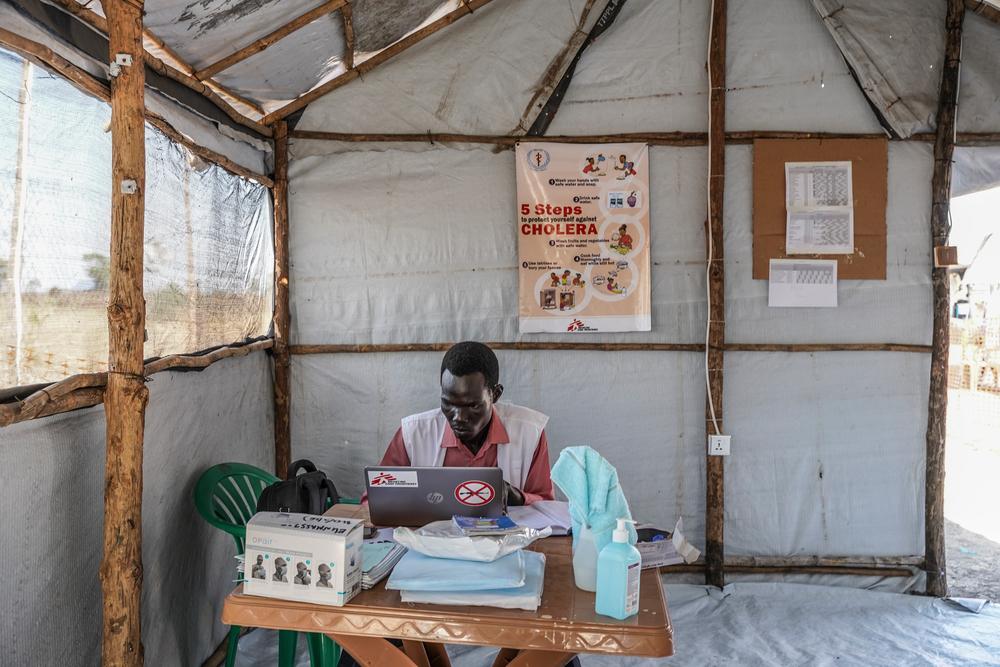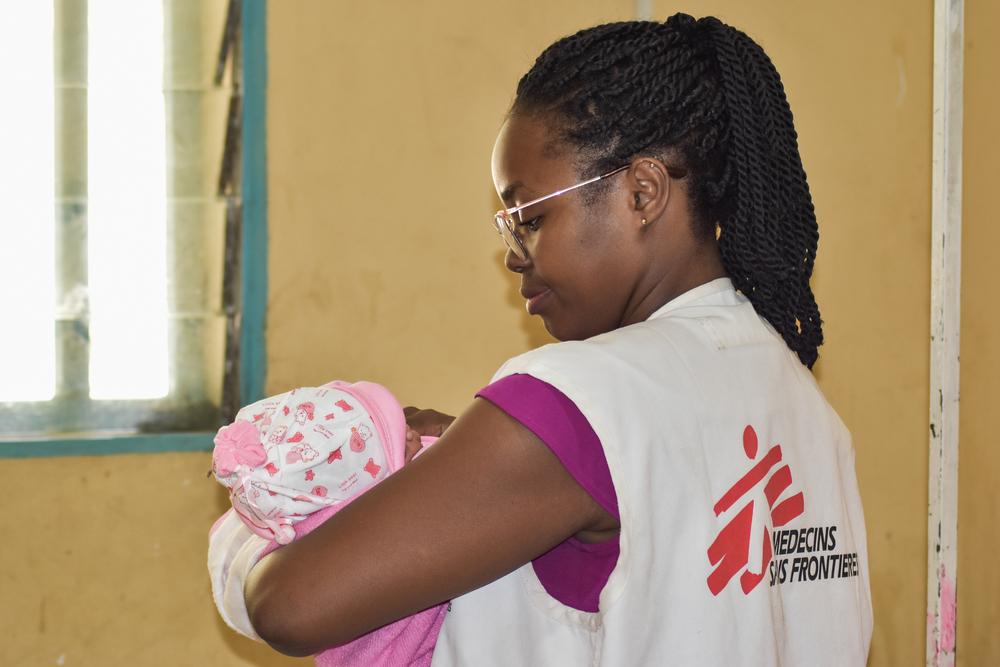Operational Research
Our Research Areas
LuxOR research advisors support various MSF programs, leveraging their medical expertise to address the most pressing operational challenges. Their research priorities include:
- Migration
- Nutrition
- Medical data in complex emergencies
- Climate, environment, and health
- Antimicrobial resistance
- Diagnostic innovation
- Sexual and reproductive health
Migration and Health
Migration and Health
In the face of the multidimensional crisis affecting the health and well-being of migrants, MSF has long been at the forefront, providing essential medical and humanitarian aid. However, some challenges persist, and the need for evidence-based interventions is more urgent than ever.
Operational research (OR) provides crucial data on the effectiveness of interventions, the impact of policies, and best practices. It helps MSF tailor its strategies to address the needs of migrants in a more targeted way, especially in complex contexts. For example, between 2015 and 2018, OR documented the conditions of migrants in Europe, shedding light on the risks of violence at borders and the health challenges they face.
To learn more about how LuxOR is addressing the health needs of migrants in Europe through operational research, click here !

Nutrition
Nutrition

Malnutrition remains a major cause of child mortality and poor maternal health outcomes in many of MSF’s areas of intervention. To address this, MSF runs integrated programmes that combine treatment for severe acute malnutrition with maternal and child healthcare, nutritional screening, food support, and the distribution of nutritional supplements.
Operational research plays a key role in improving these programmes. Some studies focus on highly vulnerable groups, such as children under six months of age, while others explore simplified approaches to managing moderate acute malnutrition. More recently, the GASTROSAM study, supported by LuxOR, is assessing the safety of intravenous rehydration in children with severe acute malnutrition and gastroenteritis.
To learn more about GASTROSAM, click here !
Antimicrobial Resistance
Antimicrobial Resistance
Antimicrobial resistance (AMR) is a critical threat to global health, undermining the treatment of common infections and increasing mortality, particularly in low-resource and crisis-affected settings. For MSF, tackling AMR is essential to maintaining effective care. Operational Research (OR) supports this by examining key drivers of resistance, such as antibiotic prescribing practices, disease burden, infection control gaps, and seasonal or contextual factors that influence antibiotic use. OR also explores patterns of resistance in clinical infections to guide empiric treatment protocols. These insights inform MSF’s strategies for AMR, help adapt interventions to specific field realities, and ultimately strengthen our ability to deliver safe, effective care to vulnerable populations.

Medical Data in Complex Emergencies
Medical data in complex emergencies

Accurate medical and public health data are vital in complex emergencies - conflict, displacement, epidemics - to maintain a clear understanding of population health needs in rapidly changing and volatile environments. MSF LuxOR advances methods to reliably measure mortality and morbidity despite data collection challenges in crisis settings. By prioritising reliable data and building epidemiological capacity within MSF operations, LuxOR enables better monitoring of health trends, evaluation of interventions, and adaptive responses. This approach enhances patient care, operational efficiency, and data-driven advocacy to protect affected populations during emergencies. Reflecting this focus, a recent joint study supported by LuxOR examines the consequences of disrupted health information systems in crises, using the Gaza context to outline principles and priorities for rebuilding resilient, cohesive systems.
Sexual and Reproductive Health
Sexual and Reproductive Health

Sexual and reproductive health (SRH) is a fundamental pillar of health and human rights, particularly in low‑resource and crisis settings. Operational Research (OR) plays a key role in analyzing the main determinants of sexual and reproductive health, such as access to contraception, the quality of antenatal and postnatal care, the prevention and management of sexually transmitted infections, as well as the sociocultural and contextual factors that influence health‑seeking behaviors and access to services. OR also explores the specific needs of vulnerable populations, including adolescents, pregnant women, and migrants, in order to inform intervention strategies and clinical protocols. These analyses enable MSF to tailor its activities to field realities and strengthen our ability to provide safe, accessible, and effective sexual and reproductive health services.
Click here to read the latest article on SRH!
Diagnostic Innovation
Diagnostic innovation
Access to timely and accurate information remains critically limited in humanitarian settings despite its importance in guiding treatment, supporting outbreak detection and response, or strengthening fragile health systems.
Diagnostic technologies are often unaffordable or challenging to implement in our settings due to unstable power supply, inaccessibility of quality consumables, harsh environmental conditions (e.g., high temperature, humidity, dust), and absence of skilled staff. As a result, outcomes often turn unreliable for patient care and surveillance.
Doctors Without Borders (Médecins Sans Frontières, MSF) plays a key role in addressing these diagnostic gaps, particularly in humanitarian contexts where no other actors are present or can fill the gap. This includes developing innovative solutions such as the Antibiogo and the Mini-Lab, which aim to improve the accessibility and reliability of diagnostics.

Climate, Environment and Health

Faced with global challenges, MSF recognizes the impact of climate change and environmental degradation on vulnerable communities, which not only exacerbates existing humanitarian crises but also creates new ones. These issues require innovative and tailored responses.
While the effects of climate change on health are well-documented, MSF's role and the adaptation of its strategies to this context remain somewhat undefined. LuxOR aims to fill this gap by improving data collection and integrating climate factors into the management of health crises. As a result, LuxOR has chosen to focus its efforts on this theme in its latest training initiative.
If you’d like to learn more about how LuxOR is enhancing MSF's preparedness for climate challenges, click here!

